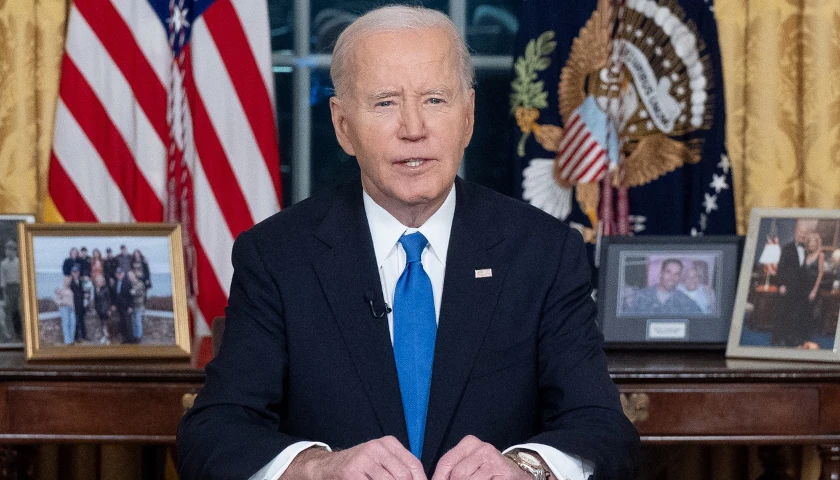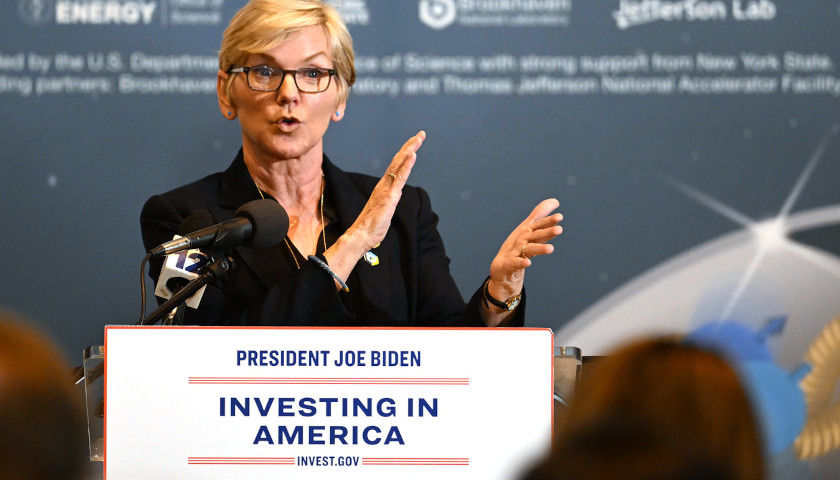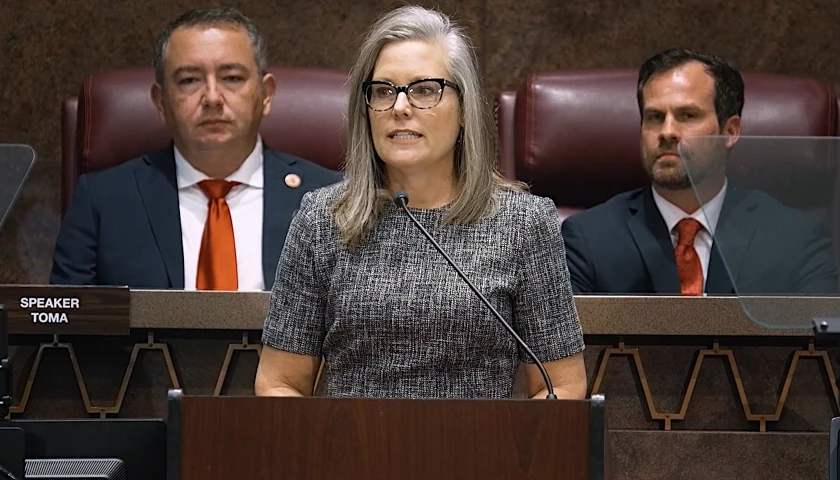by Philip Wegmann
The interlude is over: President Joseph Biden, who defeated Donald Trump in 2020 but failed to prevent his return in 2024, delivered his farewell address from the Oval Office, defending a legacy that his successor now vows to dismantle and that voters soundly rejected.
He began his presidency by seeking the counsel of historians, reportedly telling them in private “I am no FDR” but hinting that he would very much like to be remembered that way. Biden, instead, ends his time in the White House, as well as half a century in politics, among the ranks of one-term presidents such as the late Jimmy Carter.
“It will take time to feel the full impact of all we’ve done together,” said the president, who has made it clear that he feels he never got the credit he deserved, “but the seeds are planted, and they’ll grow, and they’ll bloom for decades to come.” Such germination will take time. At present, most Americans have little inclination for such a patient perspective. Biden said goodbye with nearly the lowest approval rating of his term.
It was not that his policies were unpopular, went the conventional wisdom of this White House, but that they needed to be packaged and presented differently. During his prime-time address, the normally loquacious president did not bother trying to make the sale. Instead, he reflected on his accomplishments only briefly, as if history and not the public would pass judgment at a later date. Nominees of the president-elect were busy, for the past two days, offering a detailed critique before the Senate, tearing into his legacy while hustling for confirmation.
Biden called it “the honor of my life” to lead a nation battling through “a once in a century pandemic.” Pete Hegseth, Trump’s pick to lead the Pentagon, had condemned the outgoing commander in chief’s COVID mandates only the day before, vowing that, if confirmed, members of the military who were drummed out of the ranks for refusing “an experimental vaccine” would receive an apology and be “reinstituted with pay and rank.”
Biden heralded how under his watch “Ukraine is still free” and that the U.S. pulled ahead in its competition with China, which “will never surpass us.” Florida Sen. Marco Rubio, the Republican nominee for secretary of State, offered a more dour assessment just hours earlier. He warned that “if we don’t change course,” China would surpass the entire West, and he expressed frustration with an administration that “never clearly delineated” what victory looked like for Ukraine or how that land war in Europe would end.
Biden waxed poetic about respecting “the institutions of government.” Pam Bondi, Trump’s nominee to lead the Department of Justice, accused the outgoing president of weaponizing the Justice Department and other federal agencies against American citizens, vowing “If I am attorney general, I will not politicize the office. I will not target people simply because of their political affiliations.”
The president is not unaware of these rebukes. He simply chose not to address them. Said Jake Sullivan, his national security advisor, of a vision rejected, “The president has been operating on a time horizon measured in decades, while the political cycle is measured in four years.” A flesh-and-blood manifestation of that immediacy sat to the left of the president in the Oval Office: Hunter, his son whom he pardoned. The Biden family was embroiled in scandal, dogged from the start by allegations of influence-peddling for foreign powers.
This also was not mentioned by the 82-year-old president, who spoke softly and at times slurred his words. Instead, Biden took time “to warn the country of some things that give me great concern.” His list included climate change, an allegedly wayward Supreme Court, and the pernicious effects of money in politics. Biden then switched to a familiar gear.
“Today, an oligarchy is taking shape in America of extreme wealth, power and influence that literally threatens our entire democracy, our basic rights and freedoms, and a fair shot for everyone to get ahead,” he warned. It was a rework of an old sentiment, albeit with new details, an argument that his predecessor-turned-successor was “a threat to democracy.” Looking to the digital realm this time, the president urged the country to be skeptical of “the potential rise of a tech-industrial complex.”
The warning comes as Elon Musk, billionaire owner of the social media website formerly known as Twitter, is reportedly preparing to work in an office from the White House. It also follows a newfound chumminess between Mark Zuckerberg, billionaire owner of Meta, and Trump. Zuckerberg recently likened pressure from the Biden administration to censor COVID misinformation during the pandemic and the Facebook fact-checking process that developed as “something out of 1984.” He has ended that process, a development that bothers the outgoing president.
And in this way, Biden found himself in the inconsistent position of condemning Big Tech oligarchs while complaining also that Big Tech had abandoned its censorship regime.
“Americans are being buried under an avalanche of misinformation and disinformation, enabling the abuse of power. The free press is crumbling. Editors are disappearing. Social media is giving up on fact checking. Truth is smothered by lies, told for power and for profit,” he said. “We must hold the social platforms accountable, to protect our children, our families in a very democracy from the abuse of power.”
This concern about “misinformation,” a wrinkle on the old argument about democracy that a majority of voters did not buy, bookends the presidency of Biden.
He was helped to the White House in 2020 when Facebook and Twitter censored a New York Post story about information found on his son Hunter’s laptop. He said during that campaign that it was “Russian misinformation.” It was not; the Department of Justice later relied on evidence found within the laptop to bring a case against Hunter for tax evasion.
His administration made a habit of calling for censorship; the White House leaned on social media platforms during the early days of the pandemic. Later Karine Jean-Pierre, his spokeswoman, told reporters that video of the elderly president wandering off and slurring his words was misinformation. She called them “cheap fakes.” During a recent interview with Susan Page of USA Today, the outgoing president said that his greatest regret was failing to deal with false information on the Internet.
“I mean, again, it’s the nature of the change in the way information is transmitted,” Biden told Page while seeming to imply that it was, in part, the reason for his loss in the election. “And the guy [Trump] is not known for telling the truth.”
Once his warning about the tech-industrial complex was finished, the president thanked his staff, his family, and the American people. “God bless you all. May God protect our troops. Thank you for this great honor,” Biden concluded – entrusting his legacy to history.
– – –
Philip Wegmann is a regular contributor to ReaClearPolitics.








